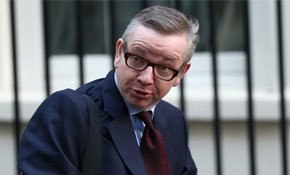John Humphrys asks: will state schools ever achieve the same standard as independents?
Michael Gove, the controversial education secretary, has set himself a hugely ambitious task. He wants state schools to become as good as public schools. And he claims he knows how to make this happen. But are his policies likely to achieve his aim? And, if not, what should be done about a system which so enhances the opportunities of those who can afford to be educated in public schools?
Even his sharpest critics do not dispute Michael Gove’s commitment to raising standards and to eliminating what has been called our ‘apartheid’ education system, which produces huge inequality of opportunity between those who go to state schools and those who go to fee-paying schools. Only about 7% of pupils of secondary school age attend public schools, but they account for about half of all entrants to Oxford and Cambridge and a disproportionately large number of the other top universities. And their advantages do not end there Sir John Major, the former prime minister and Tory leader, said recently that it was ‘truly shocking’ how ‘the upper echelons of power … are held overwhelmingly by the privately educated or the affluent middle class’.
Mr Gove’s own background makes it unsurprising that he should want to do something about this apartheid system. Unlike most of his senior Tory colleagues, he was not born with a silver spoon in his mouth, destined to attend Eton or Westminster. He was the adopted son of an Aberdeen fishmonger and his innate ability got him a scholarship to a good school and set him on the road to the Cabinet. He wants the opportunity he had to be much more widely available to other children from modest backgrounds.
In a speech on Monday he said: ‘For decades, the dominant consensus has been that state education in England was barely satisfactory; it was – if I may quote a distinguished former civil servant – ‘bog standard’. For many years, commentators have lamented poor discipline, low standards, entrenched illiteracy, widespread innumeracy, the flight from rigour, the embrace of soft subjects, the collapse of faith in liberal learning and the erosion of excellence in science and technology. The widespread view has been that the only way to get a really good education for your children was to escape – either into a better postcode or into the private sector – both, of course, extorting a hefty toll from your pocket.’
He said that between these two sectors there existed a ‘Berlin Wall’ and his aim is to pull it down and bring about the situation in which, if you visited any school in England ‘standards are so high all round that you should not be able to tell whether it’s in the state sector or a fee-paying independent’.
Is this pie-in-the-sky? He thinks not. Indeed, he claims his policies are already transforming things. He went on: ‘But that pessimistic view is no longer tenable. Because the facts show – beyond any reasonable doubt – that English state education is starting to show a sustained and significant improvement’.
How does he justify that claim? In broad terms there are two aspects to his approach. First, he has extended the policy of creating academy schools, inherited from Labour, which frees the schools involved from control by local authorities. A majority of state secondary schools in England are now academies. He has also initiated the system of free schools, set up by parents or other interested parties, paid for by the state and also independent of local authority control. The underlying idea of both is that this independence frees head teachers to run their schools as they think best.
His other approach is to take on ‘the Blob’, which is his term for the educational establishment, comprising the teaching unions, teacher training institutions, educational departments in universities and his own department in Whitehall. He accuses ‘the Blob’ of having been ‘complicit’ in producing low standards in schools by following a ‘progressive’ approach to education. In place of this approach, he favours greater rigour in the classroom, more traditional methods of teaching, more orthodox forms of discipline and a greater reliance on testing. Public schools, he believes, tend to be exponents of this way of teaching and he wants them to become more involved in the state sector by, for example, sponsoring or collaborating with academies.
Unsurprisingly, he has made many enemies. His critics argue, among other things, that far from giving schools greater independence, his policies have simply increased the power of central government over schools. He himself, as the cabinet minister with his hands on that power, cannot stop himself from interfering with the day-to-day business of teaching, whether it be telling teachers how they should teach history or (as he did this week) urging them to use traditional forms of discipline. They say he seems obsessed with testing, which many teachers believe distorts education by encouraging teachers merely to ‘teach to the test’ in order to secure good results for their schools. Only this week he suggested that four-year-olds should be tested on entering school in order to assess their initial aptitude and also that teachers should consider getting their pupils to take the Common Entrance exam, used by the private sector to select thirteen-year-olds for public school entrance.
Their main criticism of his declared ambition to make state schools and public schools indistinguishable is a simple one. They point out that the cost per head of a public school education is at the very least three times what is spent on state school pupils (and in some cases very much more) and until that discrepancy is addressed, Mr Gove’s ‘Berlin Wall’ is likely to remain unassailable.
This leads to an obvious question. If the apartheid system in English education is unlikely to wither away completely what, if anything, should be done about it? Some on the left have long wanted simply to abolish public schools but this does not seem like practical politics. For one thing, such a policy could be regarded as an infringement of the European Convention on Human Rights. But it’s also more likely to be a vote-loser than a vote-winner, which is why no mainstream party has advocated it for years.
One possibility is to lay down much more stringent conditions which public schools would have to satisfy in order to keep the charitable status that helps prevent fees from becoming even more expensive. Suggestions include obliging them to take on a proportion of state-funded pupils from poorer backgrounds, or making them become sponsors of state academies. In effect, this would lower the height of the Berlin Wall without demolishing it altogether.
What’s your view?
- Do you think Michael Gove’s vision of a system in which state schools are indistinguishable from public schools is realisable or not?
- Do you think he is on the right lines in trying to bring it about?
- How much do you think it matters that public school pupils have such an advantage over state school pupils?
- Do you think his attack on ‘the Blob’ is justified?
- And what would you most want to see done to improve educational standards in Britain?










